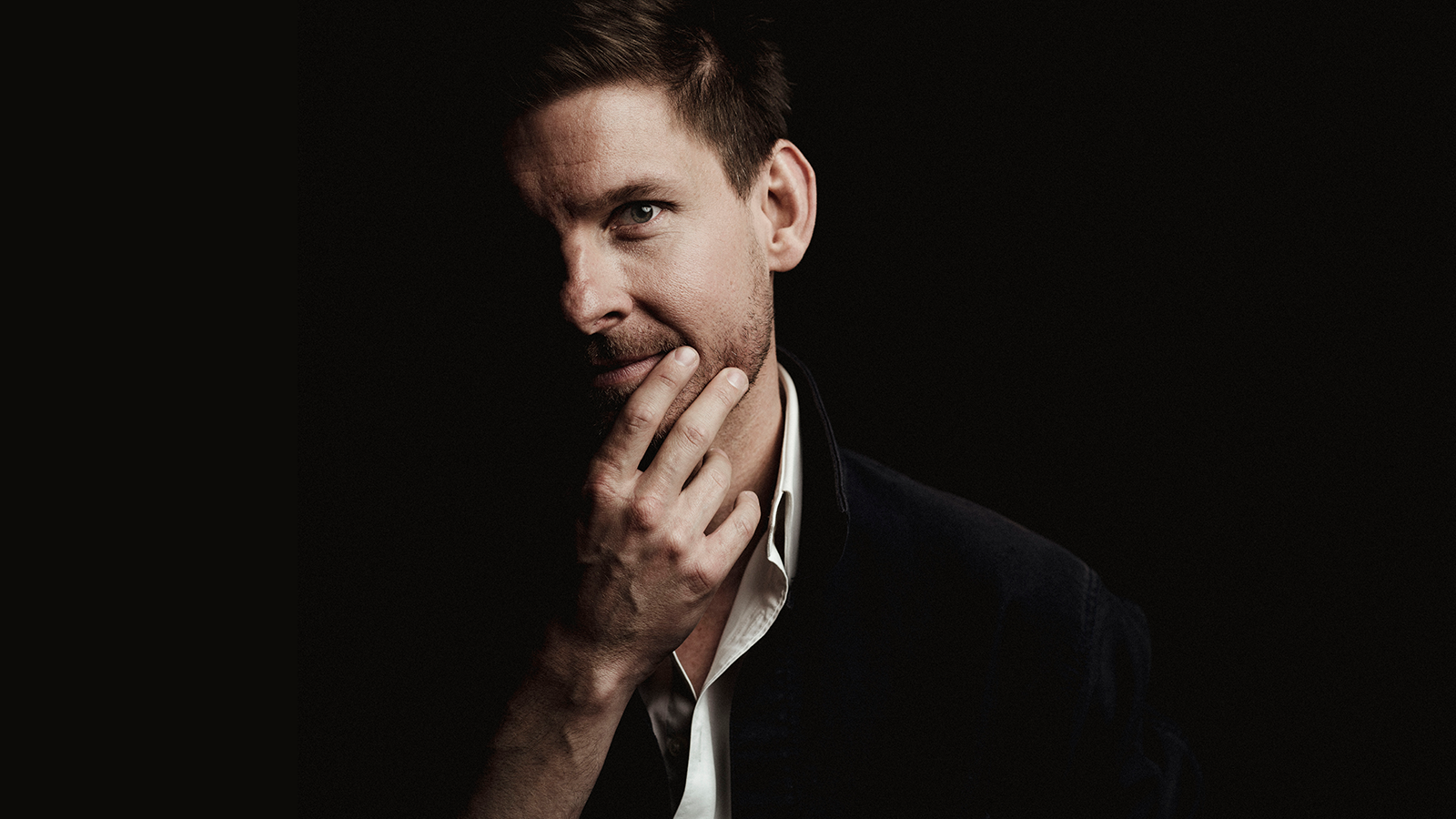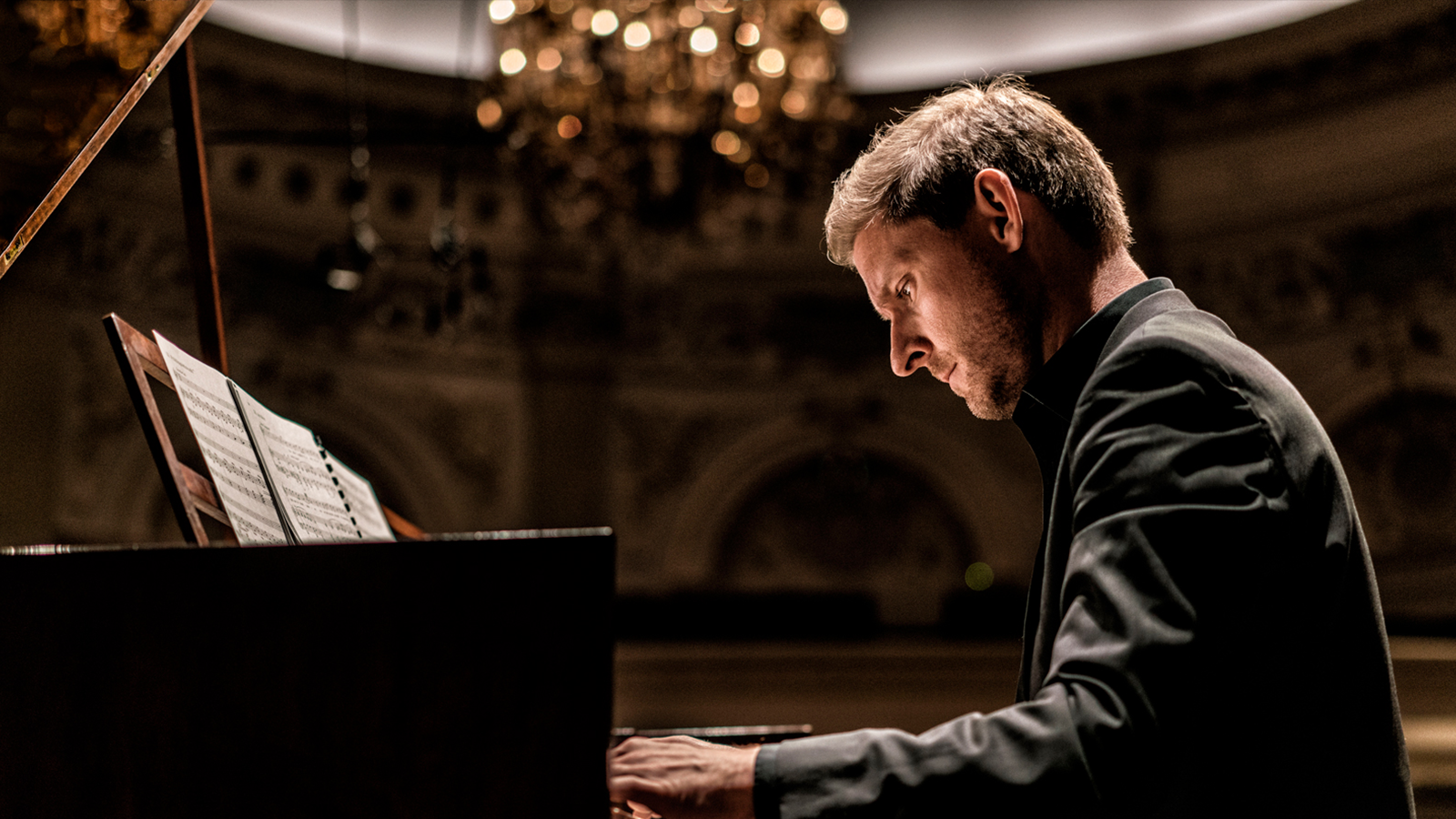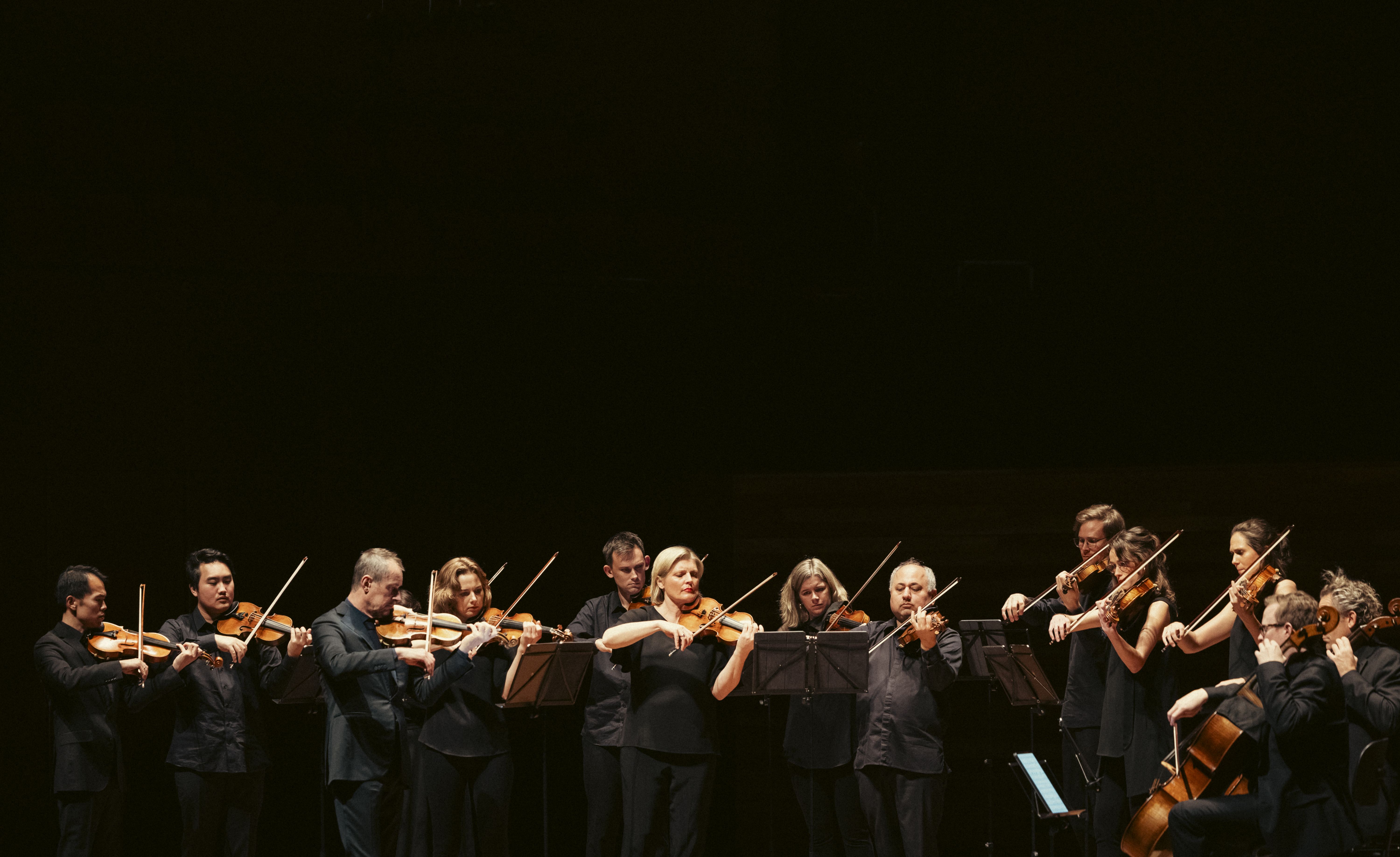
Written by Ellena Savage
Ellena Savage is the author of the VPLA shortlisted essay collection, Blueberries. She lives in Athens.
When Kristian Bezuidenhout watched Miloš Forman’s 1984 film Amadeus as a child, he says he became “completely obsessed with Mozart.”.
“It’s just a magnificent film,” Bezuidenhout tells me over the phone. He is just coming out of a rehearsal in Amsterdam and I’m at my flat in Athens. “It instilled in me a love for Mozart’s music that never left me. Any time I hear any of those excerpts from that film, they bring back such strong feelings, memories and emotions.”
I agree with Bezuidenhout: Amadeus is one of the greatest films to have been made about the stakes and dramas of the artistic life, though it strikes me a somewhat eccentric film for a small child to fixate on. It runs at three hours and depicts Mozart as a randy – if supremely talented – doofus, whose dour, less talented nemesis Salieri is driven to murderous extremes by his envy.
The film understands the supreme injustice of being stifled by the facts of our lives: by our personalities, our talents and our time periods. Forman’s Mozart has the personality of a mall rat and the talent of a god, and Salieri can’t stand it. I can see what an ambitious young music student might glean from the film, however: that making art well is an honour, and that artistic envy can – and ought to – be tamed by the gift of appreciating great works of art.
Though Bezuidenhout might be living in the wrong timeline – 18th-century Vienna might have been better suited to the fortepiano virtuoso – the present era is also not bad. When he moved as an eight-year-old from South Africa to the Gold Coast with his family, the music education Bezuidenhout received was world class. By the time he was a young man determined to be involved in the early music world, which meant moving to New York to learn from people such as John Eliot Gardiner at Eastham – “to see how they treat the material and the instruments, and to hear them live” – he found that he and other Australian students like him “were very, very well prepared. Leaving high school and going to university as an Australian music student, one felt in good hands. My impression of classical music-making at school in Australia was one of it being taken deeply seriously.”

Bezuidenhout says he struggled with elements of his early training. “It was not easy for me,” he says. “I wasn’t a gifted sight-reader and I had a lot of technical hurdles.” While I suspect Bezuidenhout’s version of “not easy” is slightly different from my own – he’s an Amadeus, I a Salieri – I find myself excited by the narrative prospect of a young punk bucking against the dictates of his form and transforming himself nonetheless into a master.
Great art, this narrative tells us, arises from the conflicting urges of freedom and constraint, expression and perfection. I ask Bezuidenhout if his recognition of those early technical challenges might have something to do with the interest he took in early pianos later in his education – instruments with an expressive capacity exceeded only by the difficulty in mastering them. Bezuidenhout says his first encounters with early piano and period instruments were “unbelievably disheartening, because the level of technical retraining you have to do to harness the qualities of the instrument, they’re just enormous”. But he was determined to carry on. “I could see there was, paradoxically, a level of musical freedom, richness and directness of expression I could get on fortepiano I could not achieve on the modern piano.”
If Mozart was Bezuidenhout’s first love, Beethoven occupies a slightly more complicated place. “Mozart was a mystery to me,” says Bezuidenhout. “And that’s why I was drawn to his music. There are such deep layers of hidden emotion, and depth which are so touching and at times heartbreaking. Beethoven’s slightly more blockbuster career sometimes overshadows Mozart’s legacy.”
“Lots of the mercurial character that we see in Beethoven is present in his music. Many pieces are designed to shock and reverberate, and to dash all hopes and expectations.”- Kristian Bezuidenhout
We discuss the imprint of what is remembered of Beethoven’s large personality on his work. “Lots of the mercurial character that we see in Beethoven is present in his music,” he says. “Many pieces are designed to shock and reverberate, and to dash all hopes and expectations. In part, this drama is what makes Beethoven so attractive to audiences. “It’s fun to play, and it requires a huge amount of physical audacity to make it work,” says Bezuidenhout. “It’s so much of an event to play his music and to be involved in it.”
Bezuidenhout is interested less in the grandiose Beethoven of lore and more in the wider context of Beethoven’s work and influence. The Beethoven’s Emperor program is inspired by the idea of tracing Beethoven’s sound world, to shine a light on composers in the generation right around Beethoven’s time. “What was the anxiety of influence like for them? What were they trying to achieve as symphonists? What lit a fire in their imagination?”
The program is built around Beethoven’s Emperor Concerto, which is from the middle period of Beethoven’s compositional career. “You see a slightly more Apollonian Beethoven emerging, one who is not quite so furiously interested in breaking the barriers down between what’s possible and what’s expected in the late 18th century and early 19th.” Music by Ries and Schubert opens the program, illuminating some more of the possibilities and constraints of the period. In a palate-cleansing twist, this sound world is followed by the Australian premiere of Swedish composer Britta Byström’s 2020 composition, A Walk to Beethoven’s First Symphony. This piece, says Bezuidenhout, is “very refined and very delicate, the whole colour of the thing is very moody and sensuous and very perfumed. I think it’s so great, it ties in well with the Schubert, too.”
Bezuidenhout will direct the program from the fortepiano. “Part of what makes a project like this is so exciting is working out exactly what one does during the other parts of the program,” he says. “It’s a very lexical situation that allows us to imagine what it might have been like to direct a concerto in the 18th century. It’s a real play-direct program in that sense.”
When I say that it sounds like a gift of a gig, he agrees. “When I work with ACO, the feeling is, how is the level so astonishingly high? You do something like this and you think this is the best thing you’ve ever done.”
Kristian Bezuidenhout guest directs the Australian Chamber Orchestra in Beethoven’s Emperor, 9-24 March. Click here to buy tickets and find out more.
